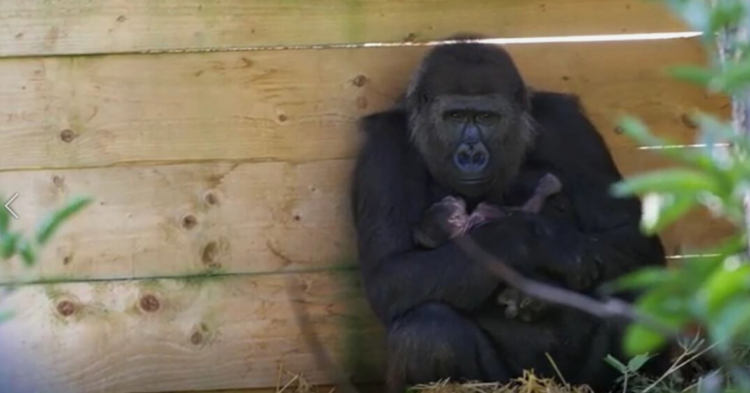Bristol Zoo is celebrating the birth of a newborn western lowland gorilla with the hopes that this latest addition will help secure a future for the critically endangered species.
On August 19, Kala, a 9-year-old gorilla, gave birth to her rainbow baby in the zoo’s Gorilla House almost exactly one year after losing her first born.
Kala’s first baby tragically died after she underwent an emergency cesarean in September 2019.

“Last year she did have a pregnancy and birth but it didn’t go as planned and unfortunately the baby didn’t survive,” Lynsey Bugg, the zoo’s Curator of Mammals, told Sky News , adding that when staff discovered Kala was pregnant again, they were “a bit on tenterhooks this time round.”
Despite concerns, Kala was able to naturally give birth in the wee hours of the morning with the baby’s father, Jock, nearby for support.
“On Tuesday Kala looked nice and comfortable and not causing us any concerns or worries,” Bugg recalled. “I came in [Wednesday] morning to find a brand new baby in the house. It was lovely.”
She also confirmed that both mom and baby are doing “really well.”
Less than a week after the birth, zoo officials are “cautiously optimistic” that Kala will be an excellent mamma to her rainbow baby.
“She is being very attentive and taking good care of her baby,” Bugg said in a press release from the zoo. “It’s very early days but we are cautiously optimistic. The early signs are good and the baby looks to be a good size and is strong.”
She told Sky News it will take “a few looks” before officials can accurately determine the sex of the newborn.
The newborn is joining the zoo’s troop of six gorillas, including her mom Kala, and dad, Jock.

All are part of a breeding program in an effort to ensure the future of western lowland gorillas, who are considered critically endangered, according to the World Wide Fund for Nature (WWF).
The group estimates poaching and disease have caused the species’ numbers to decline by more than 60 percent in the last 20-25 years.
h/t: Sky News















































